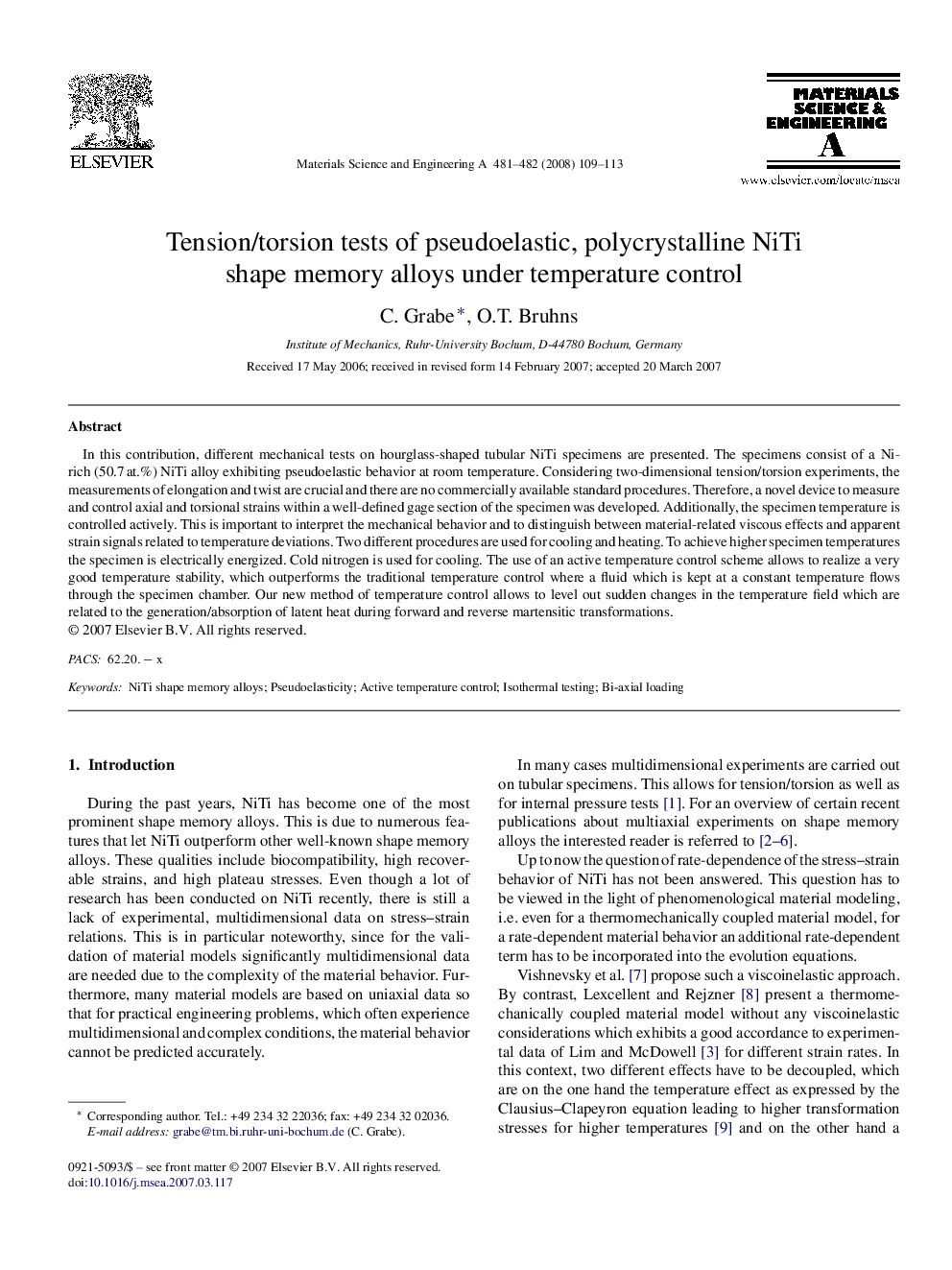| Article ID | Journal | Published Year | Pages | File Type |
|---|---|---|---|---|
| 1582450 | Materials Science and Engineering: A | 2008 | 5 Pages |
Abstract
In this contribution, different mechanical tests on hourglass-shaped tubular NiTi specimens are presented. The specimens consist of a Ni-rich (50.7âat.%) NiTi alloy exhibiting pseudoelastic behavior at room temperature. Considering two-dimensional tension/torsion experiments, the measurements of elongation and twist are crucial and there are no commercially available standard procedures. Therefore, a novel device to measure and control axial and torsional strains within a well-defined gage section of the specimen was developed. Additionally, the specimen temperature is controlled actively. This is important to interpret the mechanical behavior and to distinguish between material-related viscous effects and apparent strain signals related to temperature deviations. Two different procedures are used for cooling and heating. To achieve higher specimen temperatures the specimen is electrically energized. Cold nitrogen is used for cooling. The use of an active temperature control scheme allows to realize a very good temperature stability, which outperforms the traditional temperature control where a fluid which is kept at a constant temperature flows through the specimen chamber. Our new method of temperature control allows to level out sudden changes in the temperature field which are related to the generation/absorption of latent heat during forward and reverse martensitic transformations.
Related Topics
Physical Sciences and Engineering
Materials Science
Materials Science (General)
Authors
C. Grabe, O.T. Bruhns,
